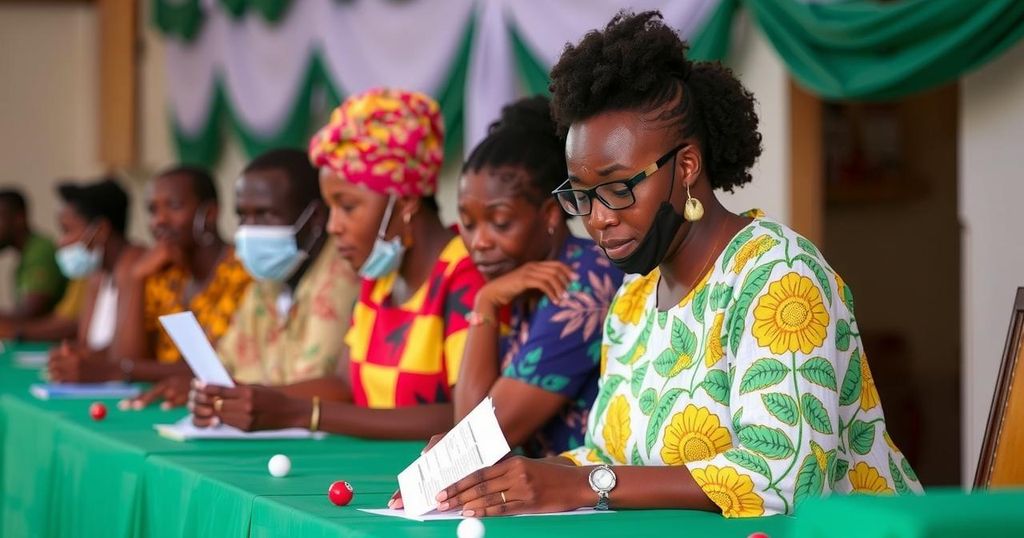Ghana held a significant presidential and parliamentary election as citizens look for economic recovery after a financial crisis. The main candidates are Vice President Bawumia and former President Mahama. Polls predict a competitive race, with expectations of preliminary results soon. Despite some violence, voting proceeded largely peacefully.
On Saturday, Ghana conducted a crucial presidential and parliamentary election, with citizens hopeful for an economic recovery following a severe financial crisis leading to a historic debt default. Current President Nana Akufo-Addo will conclude his tenure, with twelve candidates competing for his position. The primary contenders are Vice President Mahamudu Bawumia of the New Patriotic Party (NPP) and former President John Dramani Mahama of the National Democratic Congress (NDC).
Polls indicate a potential comeback for Mahama, who has campaigned on the premise that Bawumia symbolizes continuity in the policies that contributed to Ghana’s economic challenges. Mahama has also pledged to renegotiate the terms of a $3 billion International Monetary Fund (IMF) bailout obtained last year. After casting his vote, Mahama expressed, “This is the only election that we can all see the direction of the outcome before we start voting. We are hopeful and confident that we’ll win.”
Bawumia, a former central banker at age 61, expressed optimism about his chances of winning, citing the administration’s efforts towards economic recovery, evidenced by a remarkable 6.9% growth rate in the second quarter of 2024. He stated, “By the grace of God, I’m very hopeful of winning this election. I think that we have done a lot of work. We have put our message to the people; I think the message has been well received.”
Despite some violent incidents reported, the electoral process was mostly peaceful, with over 99% of polling stations operational on time. The electoral commission announced that a massive turnout was expected, although specific figures were not immediately available. Following the polls’ closure at 1700 GMT, election officials commenced counting ballots, anticipating preliminary legislative results late Saturday and the presidential results by Tuesday. Of Ghana’s 34 million population, approximately 18.7 million registered voters participated in this pivotal election.
Ghana’s recent economic turmoil has significantly impacted public sentiment towards political leadership. The nation is navigating recovery from a financial crisis that culminated in a debt default, forcing the government to seek assistance from the IMF. As the country embarks on a new electoral journey, the presidential election presents an opportunity for voters to express their desires for change and improvement in governance. With the outgoing president’s two-term limit, voters face a choice between continuity and change represented by the key candidates.
The election in Ghana promises to be a decisive moment for the nation’s future, as citizens voice their hopes for economic revitalization through their votes. The key candidates, Mahama and Bawumia, present contrasting visions for recovery, with Mahama focusing on reforming fiscal policies and Bawumia touting gradual economic improvements. While the election commenced with high turnout and largely peaceful conditions, the anticipation surrounding the outcome remains as Ghana stands at a crossroads in its governance and economic direction.
Original Source: www.voanews.com






